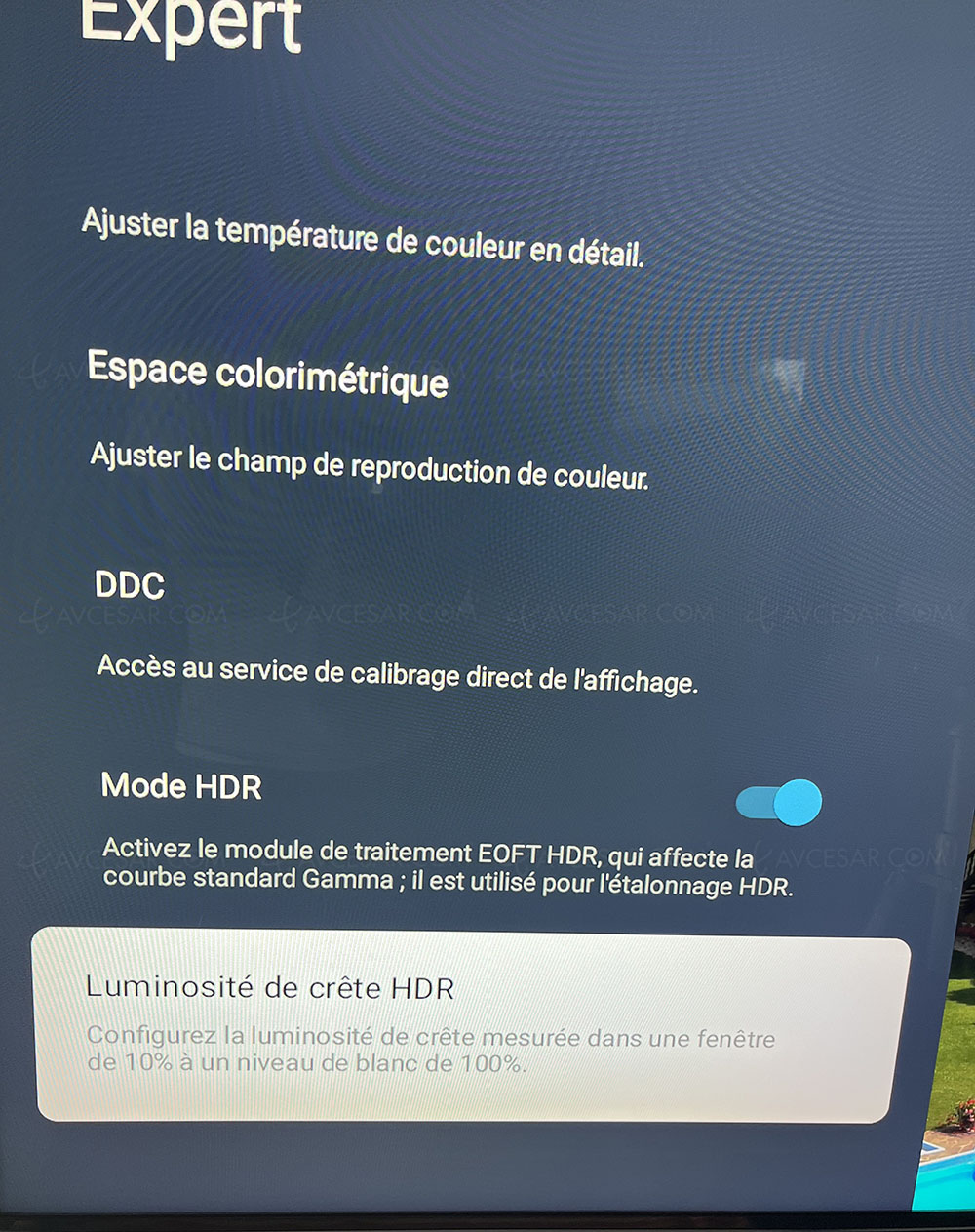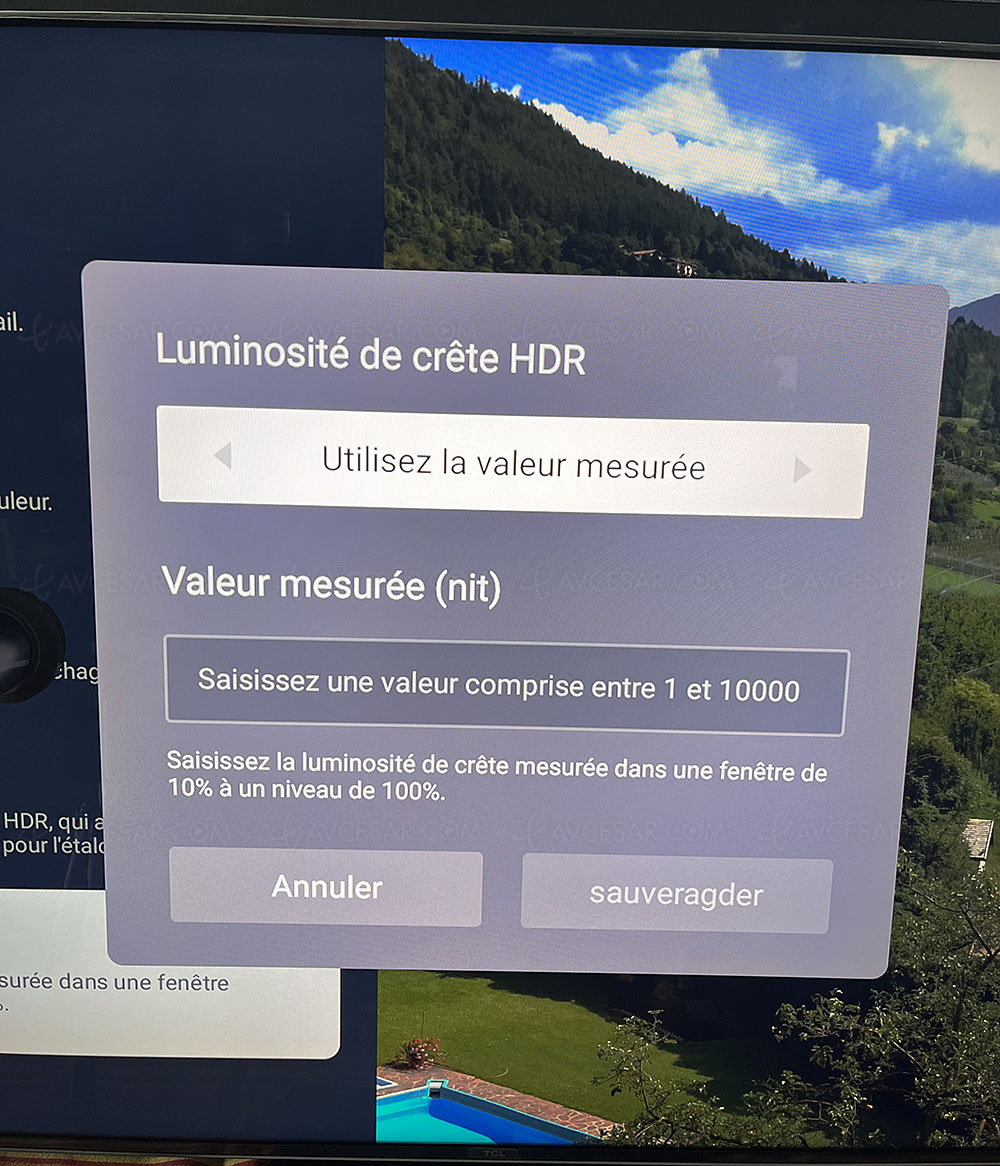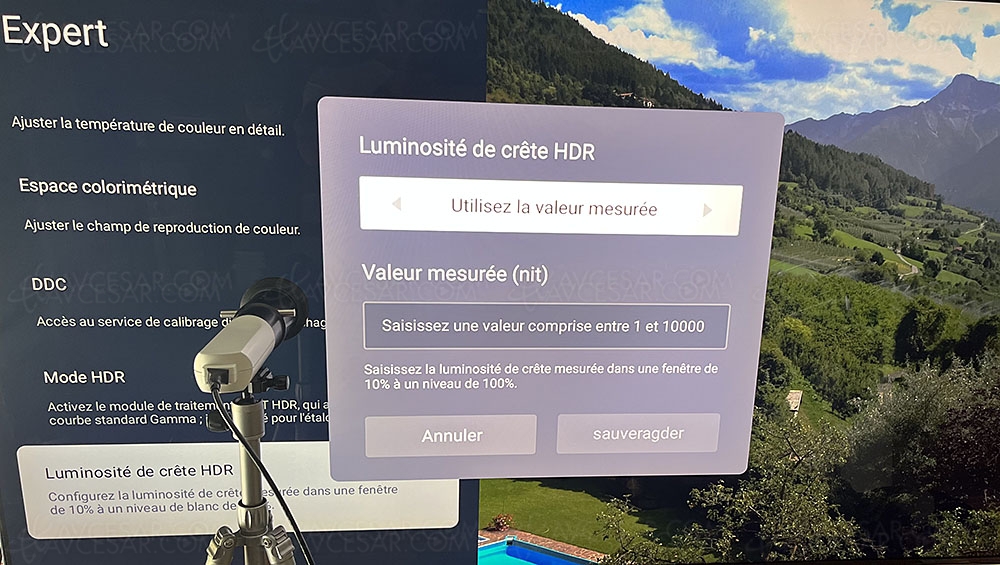Remarkable, first of all, with an initial peak luminance measurement that shows just over 2,000 nits in Cinema mode (and even over 2,300 nits with the Peak Luminance stability Vs Windows Size procedure, for a window 25% white). We therefore note that the TCL promise of a peak at 2,000 nits during the presentation of the C845 series (see our 4K Ultra HD TV news TCL C845: Mini LED OD10, QLED, 2,000 nits, HDR10+, Dolby Vision/ Atmos, 144 Hz and Google TV) is held.

New HDR Peak Brightness function
Remarkable then with the presence of the new feature called HDR Peak Brightness. The latter prompts the user, after calibration, to enter the light peak measured to the nearest nit (a value between 1 and 10,000, etc.). Thus the TV will apply the most accurate Tone Mapping for all content whose brightness level exceeds its capabilities.

A damn welcome function when you know that each television, even those of the same reference, each offers unique performance. To put it another way, no televisions on the market, even two identical models produced one behind the other on a production line, offer similar results. For example, with our C845 measured at just over 2,000 nits, it will perfectly adapt to its Tone Mapping capabilities a 4K Ultra HD signal mastered at 4,000 nits with the key, more details in the image in highlights, more accurate colors and perfect contrast for a magnified final rendering.
We repeat, this new possibility offered by TCL makes it possible to fully exploit the television set, to the maximum of its capabilities. That said, our test bed of the TCL 65C845 continues…
